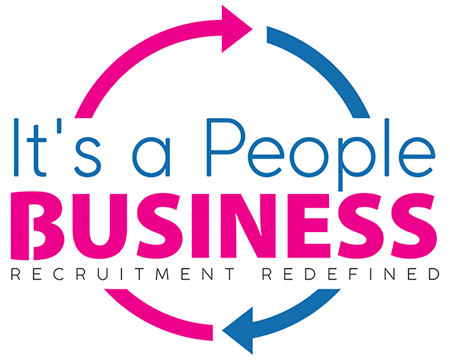Why is it Important?
Why is it Important?

Equal pay for equal work is one of the cornerstones of a just and fair society. However, gender and racial disparities in pay continue to be a persistent issue in many workplaces. Women and minorities, despite doing the same job as their male or white counterparts, can often earn less than their peers. This not only perpetuates inequity but also undermines the principles of meritocracy and equal opportunity.
Read More: Mastering Talent Acquisition: Strategies and Best Practices for Recruiting Top Candidates
The pay gap is a complex issue that stems from a range of factors, including discrimination, unconscious bias, lack of transparency, and weak enforcement of existing laws. It requires a multifaceted approach that involves policymakers, employers, advocates, and individuals. While there have been some improvements in recent years, such as the passing of the Pay check Fairness Act or the increased awareness of the gender pay gap, there is still much work to be done to ensure that all workers are paid fairly and proportionately based on their skills, experience, and qualifications.
What strategies can be implemented to ensure equal pay for equal work?
What strategies can be implemented to ensure equal pay for equal work?
This blog post will explore some of the causes behind wage inequality and outline potential steps that employers and individuals can take to ensure that everyone is fairly compensated for their work. We will look at the legal implications of wage inequality, including workplace discrimination and wage-setting practices that may be in violation of equal pay laws. We will also discuss why it is important to have equal pay for equal work, both for the individual and for society. Lastly, we will review several strategies that can be implemented to help ensure that equal pay for equal work is enforced, including pay transparency, employee training, and performance evaluations.
1. Understand Equal Pay Laws
1. Understand Equal Pay Laws

Ensuring equal pay for equal work is not only a matter of fairness and justice, but it is also important for creating a healthy and productive workplace. In today's world, organisations are expected to provide equal opportunities and treat all employees with respect and integrity. To achieve this, it is important to understand equal pay laws. These laws are designed to protect employees from pay discrimination based on gender, race, ethnicity, age, disability, or any other protected characteristics.
Do you know your laws?
Do you know your laws?
Equal pay laws cover a wide range of areas such as recruitment, hiring, promotion, and compensation. As an employer, it's important to be well-informed of these laws and take proactive measures to ensure that all employees are fairly compensated for their work. By doing so, organisations can promote a culture of inclusiveness and create a positive workplace that attracts and retains talented employees.
Read More: Mastering the Main Stages of Any Recruitment Discussion: A Practical Guide for Employers
2. Identify Possible Pay Gaps
2. Identify Possible Pay Gaps
Ensuring equal pay for equal work is an important goal that every employer should strive towards, irrespective of their industry or sector. One of the critical steps towards achieving this goal is identifying possible pay gaps within the organisation. This involves conducting a thorough analysis of salaries and wages paid to employees and comparing them against established benchmarks and industry standards.
Promote fairness and equality in the workplace
Promote fairness and equality in the workplace
It is also essential to review the criteria used for determining compensation, such as education, experience, performance, and job responsibilities, to ensure that they are objective, fair, and non-discriminatory. Identifying pay gaps is the first step in addressing and rectifying any discrepancies in pay that may exist within the organisation. By taking this proactive approach, employers can promote fairness and equality in the workplace, improve morale and productivity, and reduce turnover and the risk of potential legal issues related to pay discrimination.
3. Analyse Salary Data
3. Analyse Salary Data

Ensuring equal pay for equal work requires a comprehensive analysis of salary data across all job categories and levels. It is important to identify any pay gaps that exist between employees performing similar duties and responsibilities. Analysing salary data can reveal any patterns of pay disparities based on gender, race, ethnicity, or other demographic factors, which could be indicative of systemic biases in the organisation's compensation policies.
Regularly monitor and maintain pay equity
Regularly monitor and maintain pay equity
Read More: The Future of Work: Predictions for Online Recruitment in the Next Decade
By identifying these disparities, organisations can take proactive steps to eliminate them and ensure that all employees are compensated fairly and equitably. Such assessments should be carried out regularly to monitor and maintain pay equity and to make any necessary adjustments in compensation policies and practices. Regular salary analyses can be a powerful tool for creating a more diverse, inclusive, and equitable workplace where all employees are valued, respected, and compensated fairly for their contributions.
4. Offer Proactive Solutions
4. Offer Proactive Solutions

One proactive approach to ensuring equal pay for equal work is to offer solutions before problems arise. This can be achieved by regularly conducting audits of wages and salaries to identify any discrepancies. It is also important to establish clear communication channels for employees to report any concerns about unequal pay.
Proactive solutions lead to positive workplace culture.
Proactive solutions lead to positive workplace culture.
Employers should then promptly investigate such concerns and take appropriate action to correct any disparities that are found. By being proactive and taking steps to address potential issues upfront, employers can create an environment where employees feel valued and confident that they are being compensated fairly. This can lead to increased job satisfaction, higher employee retention rates, and a positive workplace culture that supports equality and fairness for all.
5. Monitor Progress Regularly
5. Monitor Progress Regularly

Read More: The Benefits of Working with a Flat Fee Recruiter
To ensure equal pay for equal work, it is crucial to monitor progress regularly. This will help identify any discrepancies and make necessary adjustments. Regular monitoring of progress also enables you to ensure that all employees are treated fairly and that your policies and procedures are being followed correctly. Having a system in place to track employee progress is essential in promoting transparency and accountability when it comes to pay and promotions.
Promote transparency and accountability.
Promote transparency and accountability.
It is recommended that performance evaluations be conducted regularly and consistently. During these evaluations, it is important to review job responsibilities, accomplishments, and areas for improvement. This practice will help ensure that all employees are being compensated fairly based on their contributions to the organisation. Additionally, including regular pay equity audits can also go a long way in closing any disparities and aligning with organisational goals in ensuring equal pay for equal work across the board.
Conclusion
Conclusion
In conclusion, it is vital to ensure that equal pay for equal work is achieved in all sectors. It is time to take action and make sure that gender, race, and other demographic factors do not impact pay. Employers and policymakers have a responsibility to address the issue of unequal pay and provide fair and equal opportunities to all employees. Equality and fairness are not only essential components of a just society, but they also contribute to happier and more productive work environments. Achieving pay equity is a long-term goal, but it begins with making a commitment to take action and implementing necessary changes.
Reach out to It's a People.Business for expert guidance and support in implementing these best practices. Contact us today to learn how we can help your organisation achieve these goals.
